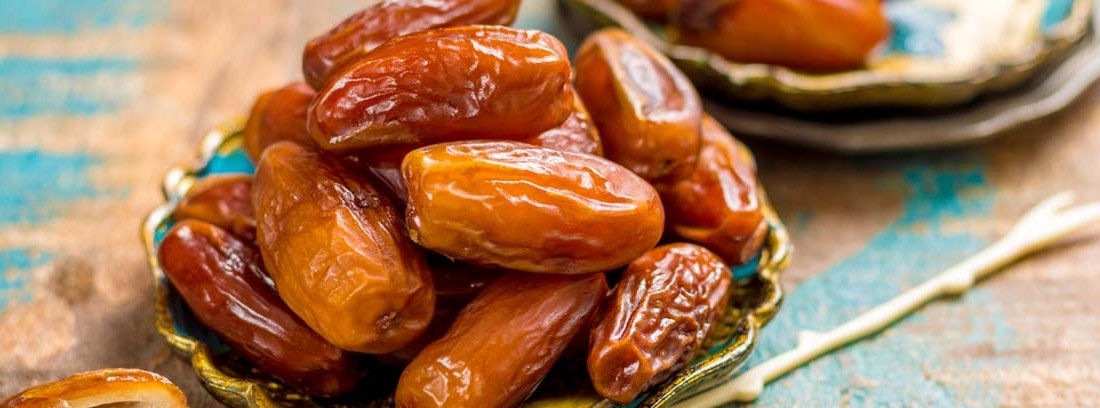Dates properties and health benefits

One of the reasons for its growing popularity is the desire to achieve a taste sweet without adding sugar to pastry products. Thus, it is a fairly common component in the entire range of sweet preparations that we frame under the “healthy” label.
Nutritional composition of dates
The fact is that it comes from a fruit naturally desiccated, for this reason, its nutritional density is high, since in the drying process what happens is that decreases the amount of water in the product and its nutrients are increased. On a nutritional level, its content stands out in:
- Sugars
- (soluble and insoluble)
- Potassium
- Calcium
- Iron
- Provitamin A (beta carotene), vitamin B3 and vitamin C
Recommended for ...
- Athletes: This is a useful way of transporting concentrated nutrients for endurance athletes. In addition, its high potassium and sugar content can come in handy for muscle recovery.
- Kids: its sweetness is usually liked, although the texture is not always well accepted. They are very practical for making sweets without added sugar, since dates already provide a good amount and, therefore, sweetness, to different recipes.
- Constipation: dates contain a not inconsiderable amount of fiber that will help improve intestinal transit.
Not recommended for ...
- People with tooth decay: the amount of sugar they contain and their sticky consistency make them a food that will promote the development of. It is important to take this factor into account when brushing your teeth after eating them.
- weight loss diets: fresh figs can be eaten, but not abused, as it is a product that, when losing water, contains a high percentage of sugars.
- Potassium-restricted diets: Like most fruits, the potassium content of figs is not negligible at all, so we must limit its consumption in diets with controlled potassium intake, as may be the case in people with kidney disease.
- Diet-related migraine cases: dates contain tyramine, which has a vasoconstrictive effect that can cause migraine headaches in people with a tendency to suffer from this type of headache.
Types of dates
There are different varieties with their differences. They are generally classified into soft, semi dry and dry. For
- Medjool dates, soft dates, very sugary and due to their soft texture, juiciness and sweetness, they are very good allies in baking.
- The Deglet Noor, semi-dry, are originally from Tunisia and can be consumed with sweet and savory. They are probably the most common variety in the markets.
- Other varieties are the Khadrawy, also very sweet, the Halawy or the Barhi that are eaten fresh, without drying.
Its versatility is almost infinite and we can find recetas with dates both in preparations sweet and salty.
What starters We can make tapas, tartlets, skewers or fill them. They go well with cheese, meats and vegetables. In main courses they can be a perfect accompaniment. They can be used in salads, in stews with rice, with, accompanying meats (chicken or turkey), even with fish. In desserts It can accompany ice cream, cakes or pasta. Also, in breakfast with cereal flakes, ... And they can complement very well fruits, such as pear, and
How to keep them longer
As they are dried fruits with a high density of sugars and little water, they are little perishable and can be kept well for months. However, it is important to take into account a number of considerations. Once acquired we can save them in a closed glass container, in a cool place protected from light. In plastic containers they are more likely to suffer mold. On the contrary, if they are kept in the air or in containers that do not close, they will dry out more, in addition to having the risk of insects reaching them.
- Season: although the dates We can savor them throughout the year, they ripen in autumn and we can find freshly picked dates in the markets during October and November.
- Benefits: they are rich in fiber, vitamins such as beta-carotene and minerals such as potassium.
- Ideal for: athletes, children and people who suffer from constipation.
Mercè Gonzalo Diploma in Human Nutrition and Dietetics Bachelor of Food Science and Technology
(Updated at Apr 14 / 2024)